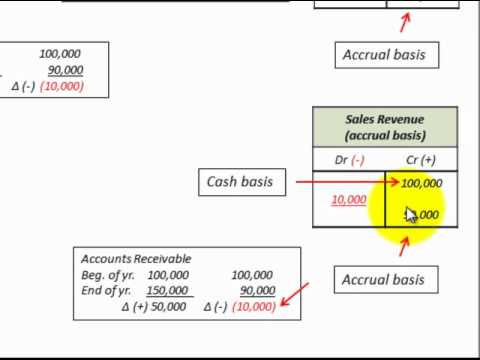
A cloud-based bookkeeping system can also save physical space—a significant benefit when considering the IRS recommends businesses store financial records for at least 3 years. For small business owners, space is an invaluable asset, as it can be utilized to store or display products or provide additional seating for customers. An accounting software, like QuickBooks Online, helps you organize your financial data, prepare small business taxes, run payroll, do your invoicing, and more. But, Bingham warns, you get what you give when it comes to accounting and bookkeeping software. It is easier to retrieve records of financial transactions and reports, but this doesn’t discount the importance of adopting a small business bookkeeping strategy.
- The income statement keeps track of the cash that flows in and out of the business.
- Be sure to contact your accountant to come up with the best possible tax plan for your unique business.
- Once these lists are complete, everyday transactions like issuing invoices and paying bills are very easy.
- You have to know the ins and outs of your business expenses and all your personal and business finances.
- If you want to crunch the numbers a bit faster and get back to the more exciting parts of your business, we have a few bookkeeping tips to help simplify (and speed up) the process.
The value of these bonuses can exceed $1,000 in some cases, and some rewards can even be used toward personal travel. While bookkeeping systems don’t rely on receipts to identify transactions, the IRS does require receipts for all tax deductions. An old-fashioned method of keeping receipts is to have a file folder for each vendor where you place paper receipts. The business shouldn’t directly pay any expenses of your personal vehicle, even for fuel that will be used entirely for business. You should use the 65.5 cents per mile received from the company to pay for your fuel and maintenance and make mileage expenses tax deductible in your tax filing.
Keep Track of Cash Payments
Another advantage of keeping your records organized is the ease of handing them over to a staff member who you may appoint in the future to manage finances. In the beginning, everything is under your purview, but as you grow, the data will be accessible to your finance staff, chartered accountants, and auditors. Being organized from the beginning saves everyone a world of trouble.
With Nextdoor, you can build real connections with real people and businesses in your neighborhood. Then, give and receive business advice, explore other local services, and foster a stronger, more resilient community. Taxes could spring up on you when you least expect them if you do not take them into account.
- The golden rule of bookkeeping is you have to make sure that every business transaction and no personal transaction must flow through your business card.
- As you establish the financial side of your business, here are five best practices to keep in mind when creating a functional bookkeeping system.
- There are many accounting project management solutions with clean and straightforward user interfaces perfect for non-techy entrepreneurs.
- Now, it’s time to decide how much of the work you’ll do yourself.
- The best way to do this is to set up a separate business bank account and use the business account to track your business’s cash flow.
You may think that combining your personal and business expenses is a good idea. However, merging your business and personal bank accounts is most likely going to cause you headaches sooner rather than later. Making sure that your financial records are backed up in the event of a natural disaster or cyberattack are key to keeping your business running smoothly. If you lose your records, you might not be able to take advantage of some important tax deductions.
Keep Your Receipts
Eversmann maintains that a business is ready for a bookkeeper when there’s enough accounting to reconcile to make you hate the process. She suggests tracking the time it takes to evaluate your books every month to see what your tolerance is. With everything else you’re juggling as a small-business owner, it’s tempting to keep postponing your books. After all, you’re in business because of your proficiency in your field, not because you enjoy bookkeeping (unless, of course, you offer financial services).
Well, this can prove to be disastrous come tax season when you would have poor or no record of your business transactions to show for write-offs and other benefits. The only way to sidestep this financial landmine is to separate your personal and business finances from the get-go. A bookkeeper records income and expenses and categorizes them for specific periods. An accountant, meanwhile, helps file taxes and sets up the accounting backbone of the organization. There are many easy programs to use for small business bookkeeping. FreshBooks is one of the most highly rated and straightforward programs for accurate accounting records, professional bookkeeper services, and more.
Dedicate Time Each Week For Bookkeeping
Bills can be overwhelming, especially if you have several receipts coming in and going out from day to day. However, it is equally important to keep track Small business bookkeeping tips of your incoming bills as well as outgoing expenses, particularly major ones. Accounting and bookkeeping can be complex, time-consuming, and tedious.
The income statement keeps track of the cash that flows in and out of the business. For LLCs or corporations, a separate account for personal finances is a must. Get up and running with free payroll setup, and enjoy free expert support. Similarly, an accurate representation of your current bookkeeping will allow you to forecast realistic financial goals for your business to hit over the next quarter or year.
In some cases, separating funds is not something your business can opt out of. If your business is an LLC or a corporation, you must open a separate account for business. Building a consistent bookkeeping practice can feel daunting, particularly if this is your first rodeo. But it doesn’t have to be difficult or painful, especially if you build healthy habits into your routine from the get-go.
FreshBooks is suitable for small business owners, self-employed professionals, freelancers, and businesses with employees. It’s necessary to keep track of your cash payments if you want to have accurate bookkeeping. When you don’t account for your transactions properly, it can put you and your whole business at risk. The same can happen if you don’t categorize your transactions right. Make sure you open a business bank account for your business expenses and do private bank account transactions on personal accounts.
Bookkeeping tips for small businesses
Below are five proven small business bookkeeping tips to help keep your books on sound footing. As a small business owner, many emergencies can pop up and disrupt your company’s cash flow. One of the easiest ways to limit the impact of a crisis is to develop an emergency funding plan. Healthy bookkeeping habits will not happen to you overnight, especially if you have never practiced bookkeeping before in your life.
Working with an accountant that can handle your small business taxes correctly will help you manage the most important details of your company. They will assist you with estimated taxes, recordkeeping, and thorough and complete filings. Any business today needs to manage its tax issues with precision.
For sole-proprietorship cash, accounting may be more suitable as it is simple to track the money. In the cash accounting method, revenue or expense is recorded when cash is received or paid. Whatever done or undone, you must always stay on top of your payables and receivables and take required actions accordingly. You will get a better overview of your business finances and the near future cash flow status of your business. With this analysis at hand, you can foresee your cash flow and correct any trends before they glide out of your hand. It will give you an understanding of how to do bookkeeping for small businesses.
Are you ready for the biggest accounting experiment in 100 years … – I by IMD
Are you ready for the biggest accounting experiment in 100 years ….
Posted: Fri, 04 Aug 2023 08:14:39 GMT [source]
If you do decide to outsource your bookkeeping, both Eversmann and Hattrup have suggestions on what qualities to look for in an individual or a firm. We believe everyone should be able to make financial decisions with confidence. Get free online marketing tips and resources delivered directly to your inbox. Start your free trial, then enjoy 3 months of Shopify for €1/month when you sign up for a monthly Basic or Starter plan.
Bookkeeping Best Practices for Startups and Small Businesses
Having documentation will guide and steer your financial decisions so that your company can grow and scale with sound forecasts. These pros are trained to handle all of these issues and will make sure that your bookkeeping is thorough and precise. Put this on your to-do list once you get a social security number as a sole proprietor or an Employer Identification Number (EIN) as a professional service firm founder.
Establishing robust accounting practices and processes can help small businesses be more financially organized, tax-ready, and profitable in the long run. However, they may not have sufficient knowledge about accounting and bookkeeping. Make your life easier by using a unified accounting project management solution to track expenses, generate custom reports, and send invoices automatically. Again, if you outsource payroll, it’s wise to have a separate business account you’ll dedicate only to payroll.
Practice Budgeting
In addition to your financial statement and business credit, understanding your business’s financial performance is critical for any small business owner if they are in for the long haul. In such a scenario, it may be difficult to obtain the necessary funding for business expansion or complete capital expenditures. Having your accounting and bookkeeping in order will help you get external funding or bank financing for major purchases. Whenever there is a major purchase in the offing, a business will need to have adequate cash flow to meet it.
One surefire way to develop a keen understanding of your business’s financial health and forecast its future is by analyzing your financial reports. Learn how much you spent, where you made profits, and where you suffered losses. Next, devise ways to cut back on unfruitful projects and improve your bottom line through data-based analytics. Not everyone in your small business team needs access to all your financial records, particularly if they relate to customers and are confidential.
Good bookkeepers do more than just keep records; they help spot ways to make a business more efficient. For example, they might identify unnecessary business purchases or late-paying customers who hurt profitability. With diligent bookkeeping and accounting, you can spot cash flow problems before they start, generate financial forecasts and make informed decisions about business finances. Recording expenses, tracking payments, and storing important documents can often feel tedious. Without organized systems in place, you may find yourself pouring over shoeboxes of receipts and documents if and when you need to file your taxes, undergo an audit, or apply for a loan.
